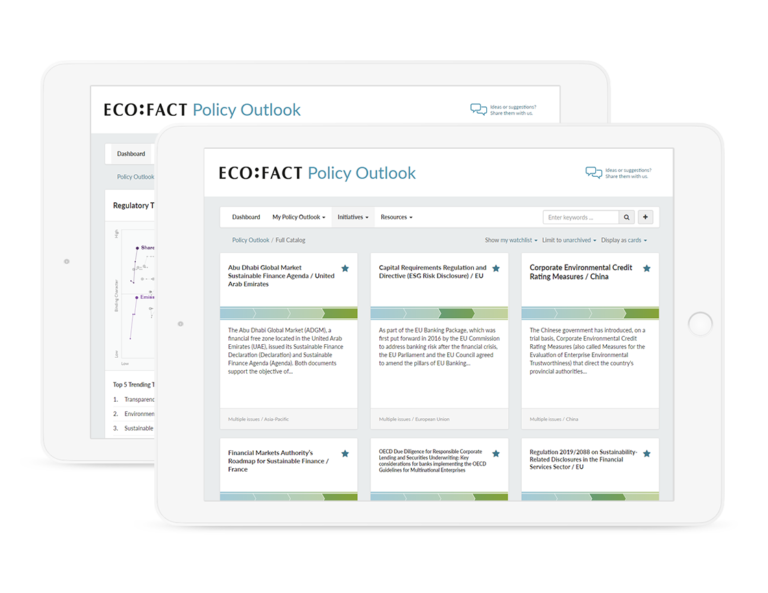Transparency and Sustainable Finance Regulations
Policy Outlook research has identified more than 260 regulatory frameworks in more than 50 countries expecting in one or another that financial institutions disclose their practices and exposure to non-financial issues. In addition, all key international organizations and bodies in the domain of finance, such as the BCBS, FSB, IAIS, IOSCO, and IOPS, have issued frameworks and/or guidance related to the topic of transparency.
Therefore, it is not a surprise that regulatory developments pertaining to transparency have been the most common and the fastest evolving type of regulatory activity in the domains of sustainable finance and corporate responsibility worldwide. The speed and complexity of regulatory developments related to transparency are not expected to diminish any time soon. Instead, it is expected to keep growing and gaining in complexity. For example, in the next few months, the EU Non-Financial Reporting Directive will be revised, the EU Sustainable Finance Disclosures Regulation will become applicable, the US SEC might start considering the introduction of environmental, social, and governance (ESG) disclosures.
Developments are not only expected to take place in developed economies, as much emerging markets’ financial regulators have been consistently announcing in their sustainable finance roadmaps the enhancement or introduction of non-financial reporting frameworks, in particular the introduction of disclosure obligations aligned with the recommendations of the FSB Task Force on Climate-Related Financial Disclosures.
When assessing all together the more than 260 regulatory frameworks, it is possible to observe a set of shared characteristics. In particular, two are the major regulatory trends when it comes to the disclosure of non-financial information by financial institutions.
Focus on financial products and services: Financial regulators across the globe are pledging to leverage financial products and services, in particular those related to investments, to mobilize capital in the achievement of the Paris Agreement targets and the UN Sustainable Development Goals. In this context, regulators are adopting a series of measures mandating financial institutions to disclose how they integrate sustainability related issues into their products and services’ processes. This regulatory trend is clear when analyzing the EU Sustainable Finance Disclosures Regulation, which focuses on investments, and the EU Sustainability Taxonomy Regulation that expects from EU states and the EU Commission to use it when issuing “any requirements on financial market participants or issuers in respect of financial products or corporate bonds that are made available as environmentally sustainable”.[1]
Expanded disclosures: When looking at regulatory action across the globe, it is possible to observe a movement towards expanding mandatory non-financial disclosures to include new topics, for example, ethnicity pay gap and board representation as well as their algorithm-based models and artificial intelligence systems in the context of the prevention of embed discriminatory patterns, for example when determining the risk profile of a transaction/client. In addition, financial institutions will be expected to disclose more information on how their activities are aligned with the achievement of the Paris Agreement targets and the UN Sustainable Development Goals. For example, under the EU Sustainability Taxonomy Regulation, they will be expected to disclose their turnover/revenues aligned with the taxonomy as well as their capital expenditure (CAPEX) and if relevant, operating expenses (OPEX) aligned with the taxonomy.
If you’d like further information on the transparency-related regulations pertaining to sustainable finance and corporate responsibility and about how Policy Outlook can support your organizations, do not hesitate to reach out to us.
—
[1] EU Council: Proposal for a Regulation on the establishment of a framework to facilitate sustainable investment: Approval of the final compromise text, December 2019, Article 1.
 All posts
All posts Contact
Contact



